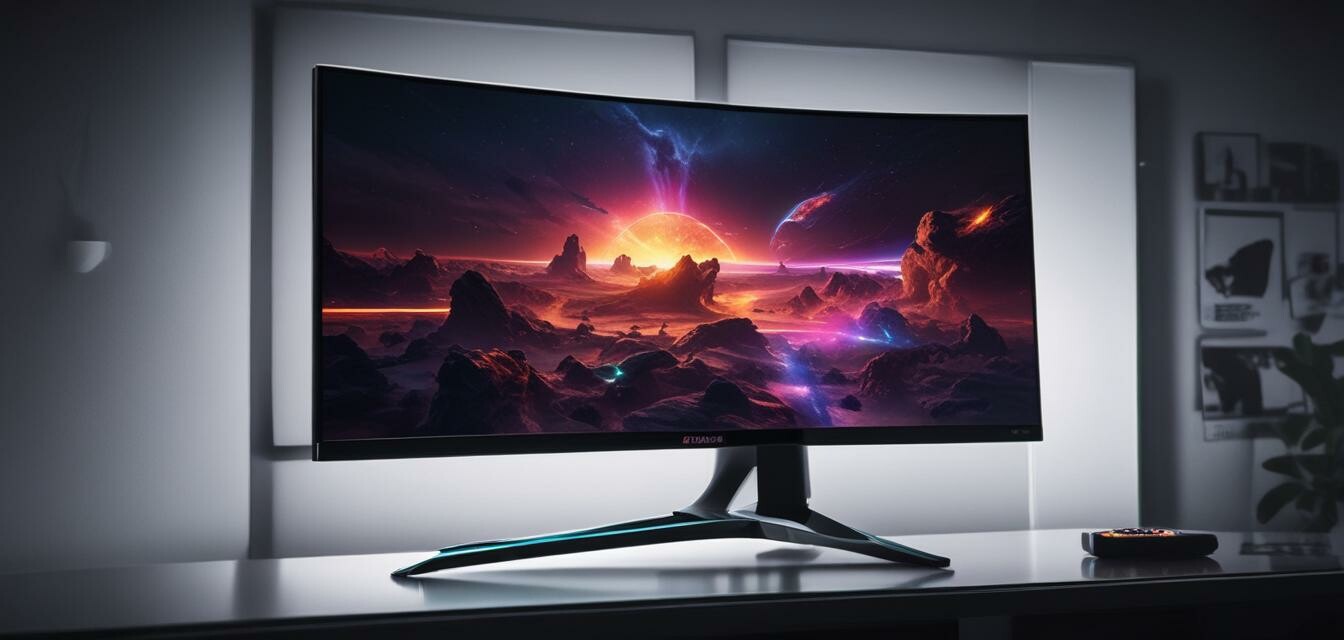
How to Choose the Best G-Sync Monitor for OLED Gaming
Key Takeaways
- Understanding G-Sync technology enhances your gaming experience by eliminating screen tearing.
- Resolution, refresh rate, and response time are crucial features to consider.
- Ensure compatibility with your graphics card to maximize performance.
- Evaluate size and ergonomics for your specific gaming setup.
- Compare different models before making a purchase decision.
With the advancements in gaming technology, selecting the right monitor can significantly enhance your gaming experience. This guide will help you navigate the intricate world of G-Sync OLED monitors, focusing on essential performance features and compatibility for different gaming experiences.
Understanding G-Sync Technology
G-Sync is a technology developed by NVIDIA that synchronizes the refresh rate of your monitor with the frame rate of your GPU. This results in smoother gameplay, reduction in screen tearing, and improved responsiveness. If you’re into competitive gaming, investing in a G-Sync OLED monitor could be your game-changer.
Advantages of G-Sync
- Eliminates screen tearing
- Reduces input lag
- Enhances visual performance
- Improves gaming fluidity
Key Features to Consider While Choosing G-Sync OLED Monitors
When looking for the best G-Sync monitor, several features matter. Here are some critical specifications:
| Feature | Importance |
|---|---|
| Resolution | A higher resolution provides stunning visuals and clarity. |
| Refresh Rate | A higher refresh rate offers smoother gameplay and better response times. |
| Response Time | Lower response times minimize motion blur and improve overall gaming fluidity. |
| Screen Size | A larger screen allows for more immersive gaming experiences. |
| Panel Type | Different panel types affect color accuracy and viewing angles. |
Compatibility with Your Graphics Card
It’s crucial to ensure that your graphics card supports G-Sync technology. Most NVIDIA graphics cards from the GTX 600 series onward are compatible. Check the specifications of your GPU and the monitor you are considering before making a purchase.
Popular Compatibility Checks
- Verify your GPU model on NVIDIA's official site.
- Check if the monitor features G-Sync certification.
- Consider your gaming resolution and the GPU's capabilities.
Evaluating Your Gaming Setup
Your gaming environment can also affect your choice of monitor. Take into account the following:
Tips for Beginners
- Measure your desk space to find the right screen size.
- Factor in your typical viewing distance when selecting a monitor.
- Consider additional features like built-in speakers, USB ports, or adjustable stands.
Comparing Different Models
When you’ve narrowed down your options, it’s time to compare different models. Look out for:
| Model | Resolution | Refresh Rate | Response Time | Price Range |
|---|---|---|---|---|
| Monitor A | 2560 x 1440 | 165 Hz | 1 ms | $400 - $500 |
| Monitor B | 1920 x 1080 | 144 Hz | 3 ms | $300 - $400 |
| Monitor C | 3840 x 2160 | 120 Hz | 4 ms | $800 - $900 |
Conclusion
Choosing the right G-Sync OLED monitor can immensely improve your gaming experience. By considering factors such as G-Sync technology, resolution, refresh rate, and compatibility with your graphics card, you can find a perfect match for your gaming needs. Don't forget to explore various models by using our product comparison section and find valuable insights to make an informed decision.
Pros
- Dynamic refresh rates for smoother gameplay.
- Amazing color reproduction with OLED technology.
- Enhanced gaming experience with minimized input lag.
- Various sizes cater to different setups.
Cons
- Can be more expensive compared to non-G-Sync monitors.
- Limited compatibility with older graphics cards.
- Some models may have a higher power consumption.
For more information on other types of OLED gaming monitors, check our categories: 4K OLED Gaming Monitors, Budget-Friendly OLED Gaming Monitors, and Portable OLED Gaming Monitors.